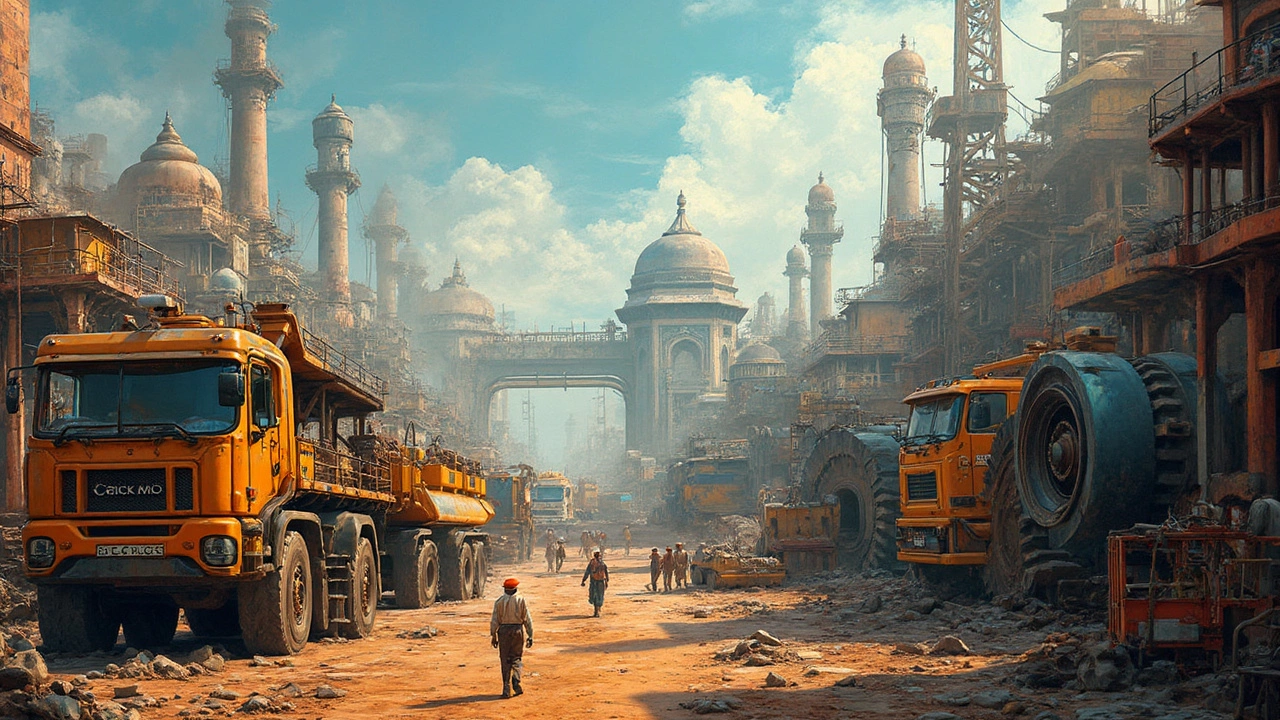Top Machinery Manufacturers in India
If you’ve ever wondered which Indian companies supply the heavy‑duty equipment that powers factories, construction sites, and farms, you’re in the right place. India’s machinery sector has exploded over the last decade, driven by government pushes, rising domestic demand, and export opportunities. In this guide we’ll break down the major players, the kind of machines they build, and what you should look for before signing a contract.
Key Players Shaping India’s Machinery Landscape
Most readers think of a handful of big names – and they’re not wrong. Companies like Kirloskar Industries, Larsen & Toubro (L&T), and JCB India dominate the market for excavators, compressors, and hydraulic equipment. Kirloskar, for example, started with pumps and now offers a full line of industrial engines and rotary machines. L&T’s strength lies in heavy engineering; they supply everything from turbines to rail‑track machinery, making them a go‑to for large‑scale infrastructure projects.
Then there’s Godrej & Boyce, better known for consumer goods but also a serious player in agricultural machinery like tractors and seeders. Mahindra & Mahindra rounds out the list with a robust tractor portfolio that dominates the farming segment across the country. If you’re after precision tools, Bajaj Electricals and Schmidt India deliver high‑quality CNC machines and sheet‑metal equipment.
Don’t overlook the growing mid‑size firms that specialize in niche markets. Doosan Infracore India focuses on construction equipment for small‑to‑medium projects, while Hyundai Heavy Industries India has carved a space in marine and offshore gear. These companies often provide more flexible financing and faster delivery times compared to the giants.
Choosing the Right Manufacturer for Your Project
Picking a partner isn’t just about brand name. Start by listing the exact specs you need – horsepower, load capacity, energy efficiency, and after‑sales service. For instance, if your plant runs on renewable energy, look for manufacturers that offer high‑efficiency motors and have proven green certifications.
Next, check the company’s track record. Ask for case studies or references from clients in a similar industry. A good sign is a long‑standing warranty and a network of local service centers. Companies like L&T and Mahindra have nationwide service outposts, which can save you hours of downtime.
Pricing matters, but the cheapest option may cost more in the long run if the machine breaks down often. Compare total cost of ownership: purchase price, maintenance contracts, spare‑part availability, and energy consumption. Many Indian manufacturers now offer bundled finance packages, which can ease cash‑flow pressure for small businesses.
Finally, think about future expansion. A modular machine that can be upgraded as your production scales will pay off over time. Talk to the sales engineer about upgrade paths and compatibility with industry‑standard controls.
In short, the Indian machinery market offers a mix of heavyweight giants and agile specialists. By focusing on your specific needs, reviewing service networks, and calculating total cost, you’ll land a partner that keeps your operation humming. Ready to start the search? Grab a shortlist, reach out for quotes, and let the data guide your decision.
